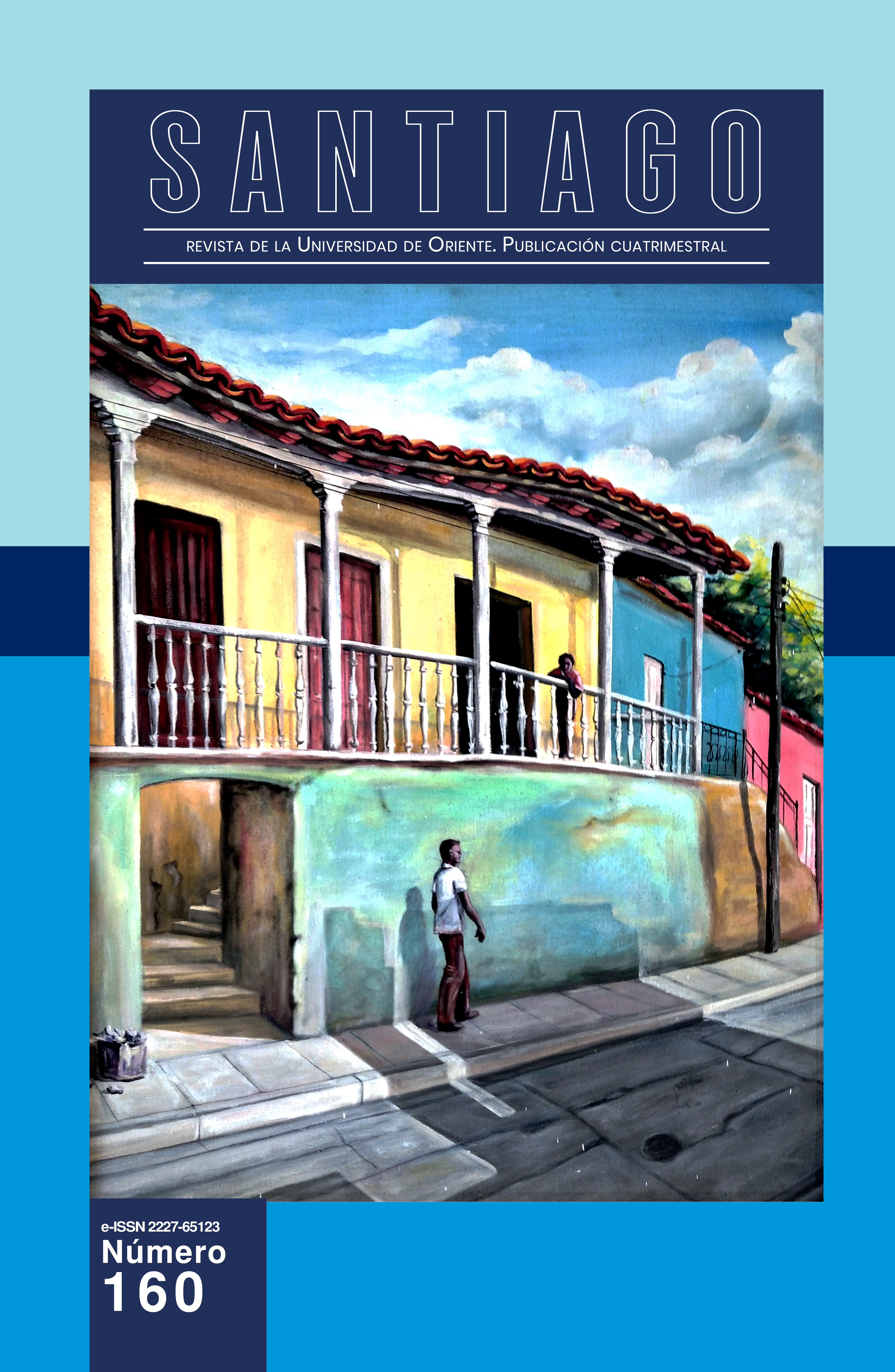Implications of the distance-virtual hybrid modality in Espam-mfl students, during the covid-19 pandemic
Keywords:
Implications, argumentative strategies, social educationAbstract
The objective of the research was to analyze the implications of the hybrid virtual distance modality in students of the Escuela Superior Politécnica Agropecuaria de Manabí Manuel Félix López, during the COVID-19 pandemic to guarantee the right to education. The survey technique, the methods: deductive, inductive, analytical and bibliographical and field research were applied. The main results show that students during the pandemic experienced feelings, emotions and concern and uncertainty in most of them. In addition, 74% of the students had problems in their psychological health due to the health emergency, as well as 54% reported affectations in their life habits and in the economic aspect, 92% suffered affectations in their economy. In conclusion, the established indicators reveal implications that affected the areas: socio-emotional, technological, academic and economic in polytechnic students.
References
Carbonell García, C. E., Román, R., Sosa Aparicio, L. A., & Alva Olivos, M. A. (2021). De la educación a distancia en pandemia a la modalidad hibrida en pospandemia. Revista Venezolana de Gerencia, 26(96), 1154-1171. file:///D:/Descargas/36877-Texto%20del%20art%C3%ADculo-65881-1-10-20211006%20(1).pdf
Chamorro, O., Olivares, S., Atoche, R., Anton, M., & Fierro, M. (2022). Academic Performance before and during the State of Emergency due to Covid-19: Analysis from the Perspective of Distance Education. International Journal of Learning, Teaching and Educational Research, 21(7). 366-378. https://www.ijlter.org/index.php/ijlter/article/view/5555/pdf
Comisión Económica para América Latina y el Caribe (CEPAL). (2020). Los Efectos Económicos y Sociales del COVID-19 en América Latina y el Caribe. https://www.cepal.org/sites/default/files/presentation/files/200605_final_presentacion_parlamericasv_alicia_barcena.pdf, p.1
Consejo de Educación Superior (CES). (2020). CES aprueba normativa transitoria por emergencia sanitaria. https://www.ces.gob.ec/?te_announcements=ces-aprueba-normativatransitoria-por-emergencia-sanitaria-31-03-2020
Corona, D., y González, J. (2021). Interacciones en el ecosistema educomunicativo ante la pandemia del COVID-19: caso de la facultad de Ciencias de la Educación de la UATx, Scielo, 12(22) p. 2 https://www.scielo.org.mx/scielo.php?pid=S2007-21712021000100012&script=sci_arttext
Estrella, F. (2022). Ecuadorian university English teachers’ reflections on emergency remote teaching during the COVID-19 pandemic. SN Social Science, 2(63). https://doi.org/10.1007/s43545-022-00365-0
Grupo Banco Mundial. (2020). COVID-19: impacto en la educación y respuesta de política. https://openknowledge.worldbank.org/bitstream/handle/10986/33696/148198SP.pdf?sequence=6&isAllowed=y
Gutiérrez, A. (2020). El impacto de la pandemia en las ciudades de los países latinoamericanos. https://www.un.org/es/coronavirus/articles/covid-19-urban-world
Mejía Gallegos, C. G.; Michalón Dueñas, D. E.; Michalón Acosta, R. A.; López Fernández. R; Palmero Urquiza, D. E. y Sánchez Gálvez, S. (2017). MediSur: Espacios de aprendizaje híbridos. Hacia una educación del futuro en la Universidad de Guayaquil. Revista Electrónica, 15(3), p. 353. https://www.redalyc.org/pdf/1800/180051460010.pdf
Ramírez, M., Andrade, L., Rivera, D., & Portuguez, M. (2021). Trends for the Future of Education Programs for Professional Development. Sustainability, 13. https://www.mdpi.com/2071-1050/13/13/7244/htm
Ramírez-Montoya, M. S. (2020). Transformación digital e innovación educativa en Latinoamérica en el marco del COVID-19. Campus virtuales, 9(2), 123-139. http://uajournals.com/ojs/index.php/campusvirtuales/article/view/744
Secretaria de Educación Superior Ciencia Tecnología e Innovación (SENESCYT). (23 de Julio del 2020). Ecuador fortalece la educación en línea. https://www.educacionsuperior.gob.ec/ecuador-fortalece-la-educacion-en-linea/
Torres, J., Rivera, D., Beltrán, A., & Andrade, L. (2022). Effects of COVID-19 on the Perception of Virtual Education in University Students in Ecuador; Technical and Methodological Principles at the Universidad Técnica Particular de Loja. Sustainability, 14. https://www.mdpi.com/2071-1050/14/6/3204
UNESCO-IESALC. (2020).Informe del IESALC analiza los impactos del COVID-19 y ofrece recomendaciones a Gobiernos e Instituciones de Educación Superior.Recuperado:http://www.iesalc.unesco.org/2020/04/14/iesalc-insta-a-los-estados-a-asegurar-el-derecho-a-la-educacion-superior-en-igualdad-de-oportunidades-ante-el-covid-19/
Villegas., W., Palacios, X., Roman, M., & Luján, S. (2021). Analysis of Educational Data in the Current State of University Learning for the Transition to a Hybrid Education Model. Applied Science, 11. https://www.mdpi.com/2076-3417/11/5/2068/htm
Downloads
Published
Issue
Section
License
Copyright (c) 2023 Rossana Dolores Toala-Mendoza, Andrea Sofía Mendoza-Zambrano, Ana María Aveiga-Ortiz, Roxanna Elizabeth Sabando-Loor

This work is licensed under a Creative Commons Attribution-NonCommercial-NoDerivatives 4.0 International License.
CC Reconocimiento-NoComercial-SinObrasDerivadas 4.0


.jpg)

_de_logo.jpg)












